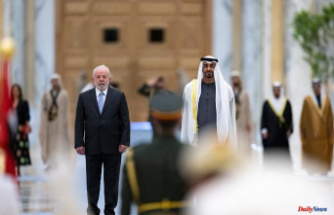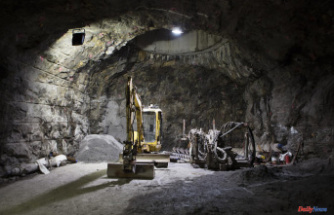Nearly three months after the start of the movement, Israelis are still on the streets. Several thousand gathered on Saturday, April 1 in Tel Aviv, for the thirteenth consecutive week, to protest against the justice reform project. A challenge that does not weaken, despite the "pause" in the legislative process decided by Prime Minister Benjamin Netanyahu.
Waving Israeli flags, protesters marched through the center of the city chanting "democracy" and carrying signs against Binyamin Netanyahu's government, one of the most right-wing in Israel's history. Smaller rallies were held in other cities across the country.
Since the announcement of the reform project in early January, tens of thousands of Israelis have been demonstrating every week to denounce the project and shout down the government formed in December by Mr. Netanyahu.
The fear of an authoritarian drift
A legislative "pause" was announced on March 27 by Mr. Netanyahu to give a "chance […] to dialogue", after a day of intensification of the protest, the beginning of a general strike and the appearance of tensions within of the majority, triggered in particular by the announcement of the dismissal of the Minister of Defense, Yoav Gallant, who had spoken out for a "pause".
For the government, the reform aims, among other things, to rebalance powers by reducing the prerogatives of the Supreme Court, which the executive considers politicized, in favor of Parliament. Critics of the reform believe, on the contrary, that it risks jeopardizing the democratic principles in use in Israel by blowing up safeguards. They fear that it opens the way to an illiberal or authoritarian drift.
A meeting took place on March 28 between representatives of the majority and the two main opposition parties, as part of a mediation under the aegis of President Isaac Herzog. Several political analysts and opposition leaders, however, are skeptical about the chances of success of presidential mediation.












